Category: Political Science
-
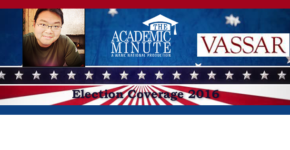
Benjamin Ho, Vassar College – Political Apologies
Politicians make a lot of apologies. Benjamin Ho, associate professor of economics at Vassar College, examines whether these apologies work and if there are consequences either way. Ben Ho is an associate professor of behavioral economics at Vassar College who applies economic tools like game theory and experimental design to understand social systems such as…
-
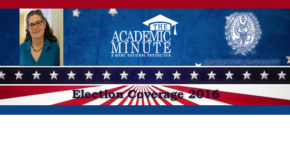
Sherry Linkon, Georgetown University – Working Class Voters
Working class voters have been in the news during this election season. Sherry Linkon, professor of English at Georgetown University, delves into deindustrialization and how it can affect this portion of voters this cycle. I do research in two areas: working-class studies and scholarship of teaching and learning. In working-class studies, much of my work…
-
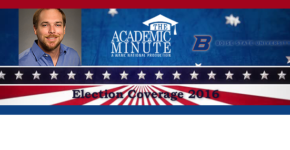
Luke Fowler, Boise State University – Environmentalism and Politics
Different regions of the U.S. think of environmental issues differently. Luke Fowler, assistant professor in the department of public policy at Boise State University, determines citizens want environmental protection, but come to different conclusions on who should provide it. Luke Fowler, Assistant Professor in the Department of Public Policy and Administration, completed his Ph.D. at…
-
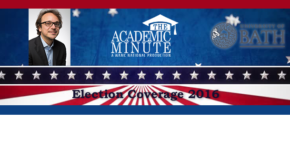
Pietro Perotti, University of Bath – Political Accounting
Who the president is may change how states report their financial data. Pietro Perotti, lecturer in accounting and finance at the University of Bath, describes how states more politically aligned with the executive may change their financial tune. I am mainly interested in three broad areas of research: the capital market effects of accounting information;…
-
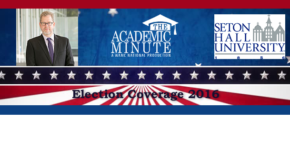
Paul Christiansen, Seton Hall University – Campaign Songs
Political candidates are marketed to voters using the magic of music. Paul Christiansen, associate professor of music at Seton Hall University, delves into the way music is used to sway the public one way or the other. Dr. Paul Christiansen is a musicologist specializing in Czech music and music in political advertisements. He recently completed…
-
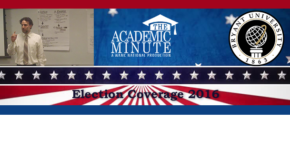
Richard Holtzman, Bryant University – Political Narratives
Political narratives are an important part of an election cycle. Richard Holtzman, associate professor of political science at Bryant University, explores the importance of narrative to political candidates. Rich Holtzman is an Associate Professor of Political Science and the Coordinator of the Political Science Program at Bryant University in Smithfield, RI. He received his Ph.D.…
-
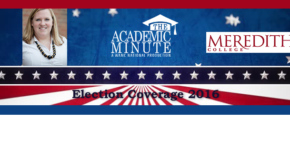
Whitney Manzo, Meredith College – Civil Discourse
How do you promote civil discourse in our democracy? Whitney Manzo, assistant professor of political science at Meredith College, details how getting students thinking and talking about it may help turn the tide. Dr. Whitney Ross Manzo holds a BA in Political Science and History from the University of Oklahoma and an MA and PhD…
-
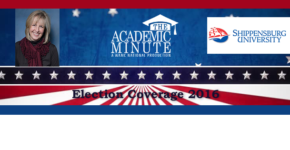
Cynthia Botteron, Shippensburg University – Qualified for Election
What makes a candidate qualified for political office? Cynthia Botteron, professor of political science at Shippensburg University, explores how other countries handle this question and whether Americans could learn a thing or two. My research interests are in comparative politics with a focus on the processes of development and the democratization of former colonial states.…
-
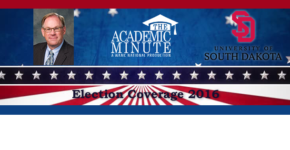
Matthew Moen, University of South Dakota – Civility in Politics
Political discussions are often uncivil. Matthew Moen, professor of political science at the University of South Dakota, delves into a few ideas to improve political discourse. Matthew C. Moen currently serves as Dean of the College of Arts and Sciences, Lohre Distinguished Professor, and Professor of Political Science. Past roles include: President of the New…
-
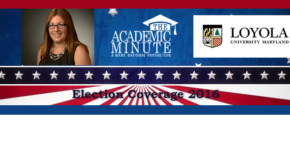
Amy Bree Becker, Loyola University Maryland – Political Comedy
Do we learn more about politics through comedy shows? Amy Bree Becker, assistant professor in the department of communication at Loyola University Maryland, details the mixing of politics and comedy and how it affects our views. Amy Bree Becker is an assistant professor in the Department of Communication at Loyola University Maryland. Her research focuses…
